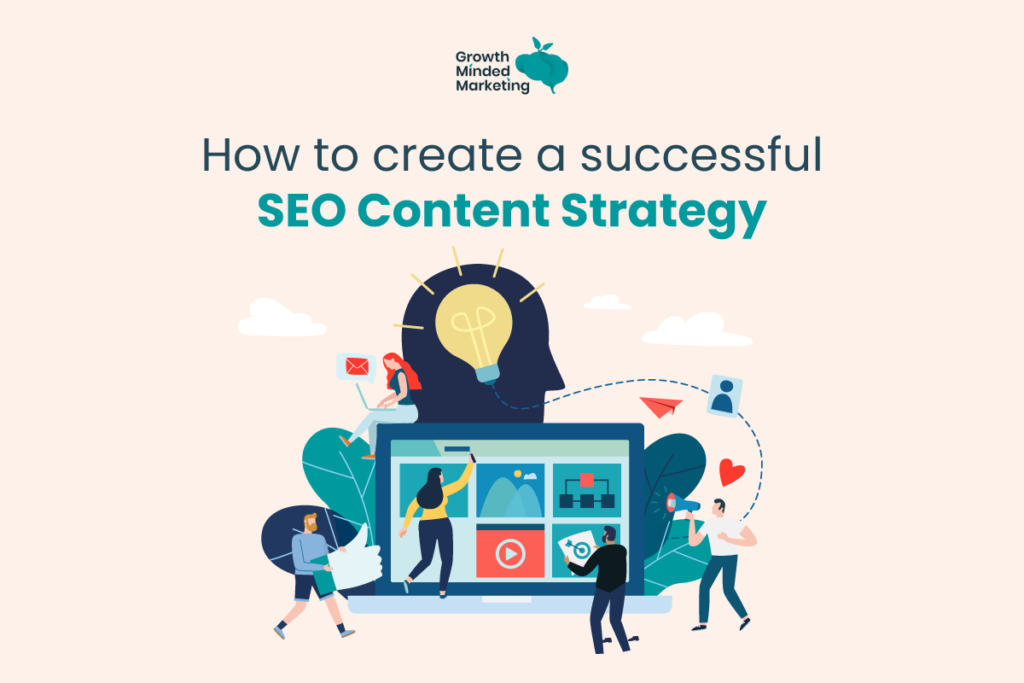Introduction
With the ever-changing online market, a good SEO content strategy is indispensable in retaining online presence. With search engine algorithms becoming increasingly sophisticated, blogging continues to be a valuable asset in this strategy, bringing many benefits to help improve search positions. Through blogging, brands can teach their audience, optimize for relevant keywords, and become industry leaders. This article delves into how blogging continues to be a mainstay in your SEO content strategy in 2025 and why it matters in today’s world.

The Relationship Between Blogging and SEO

One of the most intelligent and sustainable methods of boosting your online presence is by merging blogging with your SEO content strategy. Blogs serve as content centers that enable you to engage your audience as well as send powerful signals of relevance to search engines.
Every blog entry provides you with a chance to:
- Target exact keywords that your potential customers are looking for.
- Give useful responses to frequent questions, engaging users.
- Demonstrate your skills in a specific area of professional specialization.
This type of content not only establishes trust with your readers, but also reflects the way search engines currently rank content. Google likes helpful, new, and original content—and blogging delivers just that if done properly.
Another key benefit of incorporating your blogs as part of your SEO content strategy is that it can assist your overall structure on your website through internal linking. You can link readers from a blog to your service or product pages, which can help distribute link equity and keep users on your website for longer.
Also, regular blogging informs search engines that your site is actively being used and kept up-to-date. This can trigger faster revisits by the search engines, enhanced domain authority, as well as better performance for your web pages as well as your blog articles.
At its core, blogging and SEO are interlinked. Without a blog, your SEO content strategy could only reach so far in terms of depth, reach, and versatility. But with a powerful blog, you open the door to taking over search pages, driving natural traffic, and converting visitors into customers—building a sustainable content asset in the process.
Main Advantages of Blogging in Your SEO Content Strategy
1. Target Long-Tail Keywords
One of the strongest advantages of using blogs in your SEO content marketing strategy is the potential to rank for long-tail keywords. Long-tail keywords are specific, low-competition keywords that are normally indicative of high intent.
The key here is to write a blog on something specific such as “best digital marketing strategies for small businesses in 2025” as opposed to going for the general keyword of “digital marketing.” This targets users with a very definite requirement—making it simpler to turn them into customers or leads.
With each blog article, you can write a distinct long-tail keyword angle, building a content library that addresses a variety of search intentions as well as growing your organic reach.
2. Improving Website Indexing
With each new blog you publish, you’re creating a new page for search engines to crawl and get indexed. The greater the quality of your website’s content, the greater your opportunities are to rank in search engines.
This stream of new content also keeps your website active in the eyes of Google. A constantly updated blog conveys that your company is active, interested in its customers, and dedicated to delivering value—qualities Google likes to see in content.
Within your SEO content strategy, this holds particular significance for being competitive as well as ensuring your website remains discoverable by new users.
3. Enhancing User Engagement
Excellent blog posts don’t just bring visitors in—they keep them.
High-quality, informative blogs get readers to linger on your website longer, which lessens bounce rates as well as boosts the average session duration—two important signals Google measures to gauge user satisfaction.
The addition of interactive elements such as videos, infographics, comment boxes, and concise CTAs (calls to action) also brings about better engagement. The longer users are on your content, the higher the chances that search engines will grant your website greater visibility.
A savvy SEO content strategy applies blog content not only for search rankings, but to engage visitors as well as send them down the conversion funnel.
4. Creating Natural Backlinks
Backlinks—links from other sites to your website—are a key top-ranking signal in the Google algorithm. And high-quality, relevant blog content is one of the most effective means of attracting backlinks naturally.
When you produce content that provides true value—like original research, extensive guides, or expert analysis—other websites are likely to link to it in their content. This develops your domain authority as well as your chances of a higher search position for competitive keywords.
A successful SEO content plan includes linkable blog posts that organically gain backlinks as time goes on without the need for paid promotion or outreach.
5. Promoting Internal Linking
Blogging also builds your internal linking system. Every new blog post provides you with additional chances to link to applicable pages on your website—be it product pages, service pages, or other blog entries.
Internal links enable users to navigate your website with ease, enhance time on site, as well as enable search engines to recognize the connection between your content items. This shares page authority (or link equity) throughout your website and significantly improves overall SEO performance.
As a matter of SEO content strategy, each blog must contain links to key internal pages to help users and enhance crawlability.
Blogging in 2025: What Has Changed
As of 2025, blogging is no longer merely publishing articles—it’s about crafting experiences. The new SEO content strategy needs to include consideration for changing technology, search habits, and consumer expectations.
Key Evolutions:
- AI-powered content creation: AI tools such as ChatGPT, Surfer SEO, and Clearscope currently help marketers write and optimize content in a smarter, faster, and more keyword-integrated manner.
- Voice Search Integration: Now that smart devices and voice assistants are widespread, blogs need to respond to questions in natural, conversational tone in order to capture traffic from voice search.
- User Experience Focus: Page experience is a core priority for Google, with blog design, page loading times, mobile usability, and accessibility becoming increasingly important factors in SEO.
- Video & Multimedia Content: Video is on fire. Adding short videos, infographics, and podcasts to blogs grows dwell time as well as content value.
Simply put, successful blogging in 2025 takes more than words—strategic planning, technical SEO, and keen insight into audience needs are all called for.
Best Practices for a Powerful SEO Content Strategy
- Emphasis on E-E-A-T
Make sure each blog exhibits Experience, Expertise, Authoritativeness, as well as Trustworthiness. Incorporate quotes by experts, references to credible sources, and practical examples. - Optimize for Voice Search
Use natural, conversational language in your blog posts to mirror the way users search by voice. - Utilize AI Tools
Utilize AI tools such as Jasper, ChatGPT, SurferSEO, and MarketMuse to assist in keyword targeting, topic suggestions, and content structure. - Develop High-Quality, Engaging Content
Don’t write to fill pages—serve up fresh perspectives, address actual issues, and structure content for clarity with headers, bullet points, and imagery. - Implement Effective Internal Linking
Each blog article ought to lead users to the next step—whether reading another article or visiting your services. Use internal links to lead them.
Conclusion
Including blogging in your SEO content strategy has become a must—no longer a nicety. From targeting long-tail keywords to enhancing opportunities for indexing, driving engagement, and securing backlinks, blogging continues to be one of the most useful and effective tools in digital marketing.
As we progress deeper into 2025, evolving your strategy to incorporate AI, voice search, and sophisticated SEO practices will help your content be competitive and relevant. Blogging, done properly, not only generates traffic, but it establishes long-term trust, authority, and success for your business.

